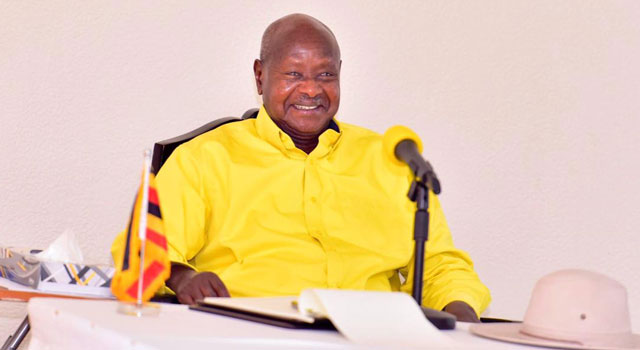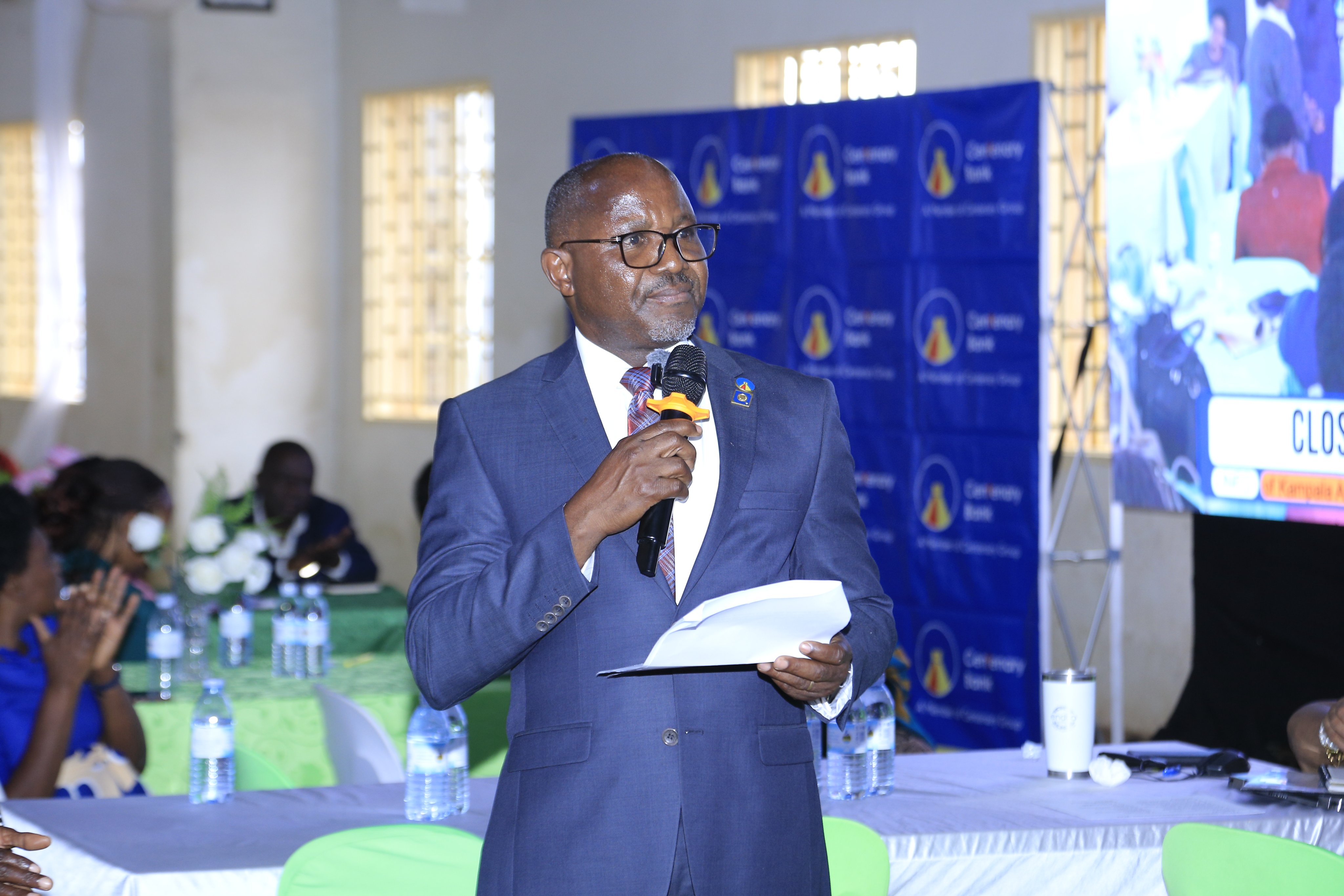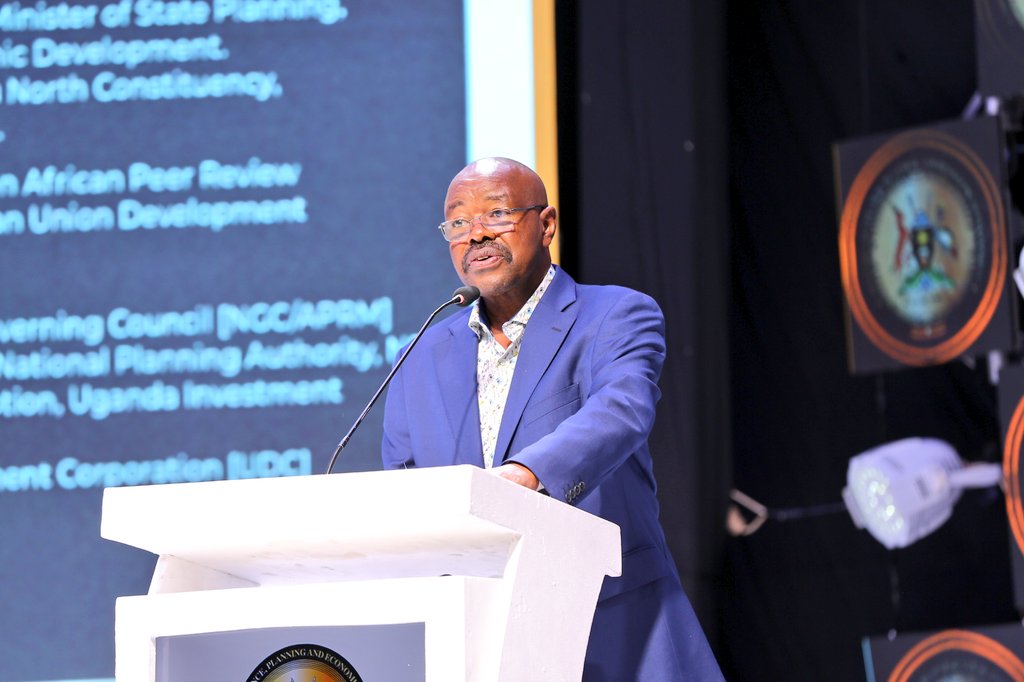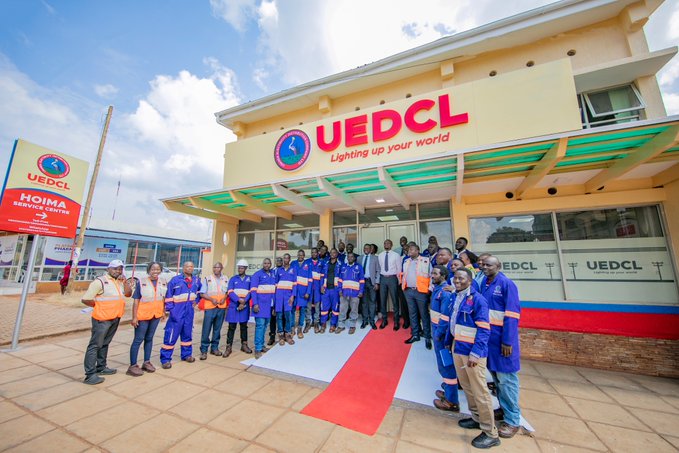Museveni’s Latest Stance & The Mafias’ Long Plot To Grab Owino Market From The Vendors
The valid question is as to what in the future is going to stop the government from tendering out the market to another Ham if at all it wishes!

By Isaac Mutema
A Kenyan man of the Luo tribe is believed to have started what is presently known as St Balikuddembe Market. The Luo man’s name was Owino. So, the market was appropriately named after its founder, in recognition of his efforts in putting up the facility.
But legend has it that, apart from being a vendor, Owino was also a terrible criminal.
This is why the Catholic Church leadership in Uganda, whose faithful was martyred inside the market, ended up lobbying the central government to rename it St Balikuddembe as we know it today.
We have felt obligated to point out this piece of history since, we hope, it’s useful for today’s youth and posterity.
President Yoweri Kaguta Museveni presently seeks to recover the said Kampala’s most populous market from the vendors back to the central government.
For that matter, the President has issued a directive to the land’s minister Judith Nabakooba to look for the title for the market and recover it.
The title will, after its recovery, be cancelled out from the names of Godfrey Nkajja Kayongo and the company currently managing the facility on a lease basis and revert to the central government.
The legend of the Park Yard market
The largest part of the land where businessman Ham Kiggundu’s multi-million shopping malls are located in downtown Kampala used for many years to hold a market known as Park Yard.
For the record, the Park Yard market started well ahead before Ham’s birth. That big space originally referred to as Park Yard formed part of the Nakivubo war memorial Stadium’s land.
The same was being rented out to market vendors for use to sell their items. This is exactly where sports items dealer, David Katumwa would cut his teeth as a second-hand sports shoe vendor.
Katumwa’s particular spot of operation was referred to as Katuba market zone. Katuba was a tree from which the barkcloth is made out. It’s no more!
It was under the shed of that tree that Katumwa and his colleagues used to operate to protect themselves from the scorching sun.
Progressively, the vendors started to erect semi-permanent stalls out of timber roofed initially with papyrus, and later on, iron sheets. As the demand for land in Kampala heightened, the rich people started to eye the Park Yard area with envy.
What followed was mysterious and suspicious night fires that would occasionally burn down the stalls.
Mysterious fires
The vendors would on such occasions lose a lot of items of trade to fire but would put back their stalls and life moved on before another fire would mysteriously arrive and consume yet more items of trade.
How can I phrase this one! Well, in brief, those were very challenging times of re-erecting stalls and re-erecting stalls as well as restocking goods and re-stocking goods. Yet, only to lose both the stalls and goods again and again to the fire.
The fire, of course, would be stage-managed by people who wanted to wear out the vendors’ grit and capital by causing them enormous losses again and again. Yet the vendors kept weathering every storm one after the other.
What did we hear ultimately? The central government’s giveaway of the land to one man, behind, moreover, the backs of the sitting vendors themselves!
That man was Ham. Fight as they could to recover their land, but the vendors fail to dislodge Ham. The godfathers in the central government, couldn’t allow the vendors to succeed over Ham!
Next, we saw and witnessed, was an exceedingly joyous Ham at State House.
On this particular occasion and date, the President had invited Ham to hand him the title for the land, which eats even in the one where the original Nakivubo Stadium itself, used to sit.
Let me tell you, certain sports personalities such as former soccer legends, Issa Ssekatawa and Ibrahim Buwembo, among others went to court to try to pursue the recovery of the stadia’s land from Ham.
I don’t know, and yet highly doubt, if the case has ever been resolved.
What is highly probable, though, is the fact that the case itself is instead gathering dust there on the shelves of the commercial division of the high court located within a stone’s throw from State House Nakasero, from where Ham gladly picked the Title of the Stadium from Museveni.
Ham Shopping Malls
Meantime, Ham is going forward erecting his shopping malls, without yet the stadium’s construction, which was the condition for doling out the land to him, making any meaningful headway.
Before politics took centre stage in the markets of Kampala, Kampala’s City Council (KCC) was the one in charge of running those facilities.
The other divisions making up the Kampala capital city would run the markets under their jurisdictions but with guidance from KCC. Over time, politicians got to learn that there was good money in markets as well as good votes there.
After that, the markets turned into political battlegrounds between the ruling NRM party and the Opposition. Since the party in power is vested with too much power naturally, the NRM used that advantage to put its cadres in almost all the markets in Kampala.
This is how Hajj Hassan Basajjabalaba was enabled by his godfathers in the central government to take charge of St Balikuddembe Market. Owing to Basajjabalaba’s crude way of doing things, the vendors would later revolt against his style of administration of the markets.
The displeasure of the vendors was so deafening that the central government was able to hear it loud and clear. Ultimately, Basajjabalaba was removed from the markets of St Balikuddembe and Nakasero.
Shauriyako and Kisseka markets
So were other NRM cadres such as Col John Mugyenyi who was in charge of Shauriyako and Kisseka markets. The central government removed them since they were proving to be more of political liabilities than assets.
After the exit of Basajjabalaba, an NRM-leaning Godfrey Nkajja Kayongo was assisted by the powers-that-be to replace him in the Owino market. A shrewd businessman, Kayongo would scheme and finally pay in 2014, for a ten-year lease period in respect of the Owino market.
Kayongo picked a big loan from the dfcu bank to clear the lease fees, and to purchase another piece of land in Kisenyi. The vendors were supposed to relocate to Kisenyi ahead of reconstructing and widening the Owino market.
For the record, Kayongo was, of course, enabled by his godfathers within the central government. This was done to lock out the opposition from the running of the market as well as starve them of the funds that come with it.
Kayongo’s faction would fail to clear the loan fully prompting dfcu to attach the Title of the other land in Kisenyi. It’s not exactly clear whether Kayongo finally cleared the loan fully and redeemed the Title of the land in Kisenyi.
But we know that Kayongo later fell out with his godfathers in the central government. This is what happened. After securing the lease, Kayongo got the feeling that the market was now a private entity as opposed to a public entity.
Kayongo and the Arab developer
So, he thought, he no longer needed to take orders from anybody but was now free to run the market with his fellow directors as per their own Constitution. He would under that feeling end up contracting an Arab investor to redevelop the market.
The central government’s big wigs who had helped to place Kayongo in the Owino market were alarmed by what he did and without even recourse to them.
Small wonder, the central government, using its own Financial Intelligence Authority (FIA) would block the Arab from stepping into Owino. The body used the excuse of laundering money from abroad to effectively keep away the Arab.
The Arab has since sued the government and KCCA for breaching the contract following clearance by Solicitor General.
The Arab asserts how he had mobilized loans from foreign banks in anticipation of using them to redevelop the market and earn profits later from leasing out the finished stalls.
But that, he adds, the central government bungled the whole deal. Yet interest continues to accrue on the loans he had arranged for coupled with penalties.
He demands compensation from the government and KCCA which triples Uganda’s current budget of more than forty trillion shillings and a larger part of which is made up of borrowed funds.
State house’s Sarah Kushaba jets in
Before blocking the Arab, the State House had dispatched a woman known as Sarah Kushaba to run Owino. This was done against Kayongo’s ten-year lease issued by KCCA and which was still subsisting.
As Kushaba unnecessarily engaged Kayongo in the ping-pong about who was legally empowered to run Owino and who was not, the time on the lease granted to Kayongo was running out.
Kayongo would also end up being diverted from concentrating on mobilizing the funds to redevelop the market, a sticking point in the lease contract KCCA had granted to him.
Yet he had found an Arab who was going to help him to take care of that. But, again, the central government blocked the investor and his funds!
President exploiting Kayongo’s failure to redevelop Owino
And yet, the President is exploiting the failure of Kayongo to redevelop the market, as per the contract, as the justification for removing the facility from him.
The President is also exploiting the fact that KCCA leased the market to Kayongo as opposed to giving the facility to the vendors as the basis for removing the facility from the man.
But the government is also taking the market from the vendors and is going to keep it as opposed to giving the same to the vendors themselves much as the vendors would remain doing business there.
The valid question is as to what in the future is going to stop the government from tendering out the market to another Ham if at all it wishes!
In any case, the title is not only going to be kept by the central government itself but the same is also going to be registered in the names of the central government itself.
I think the person or entity registered on the Title is automatically the owner of the property with powers to use the same as he or she chooses.
In a word, one doesn’t become the owner of the property by mere word of mouth, but by a legal instrument, in this case, the Title.







